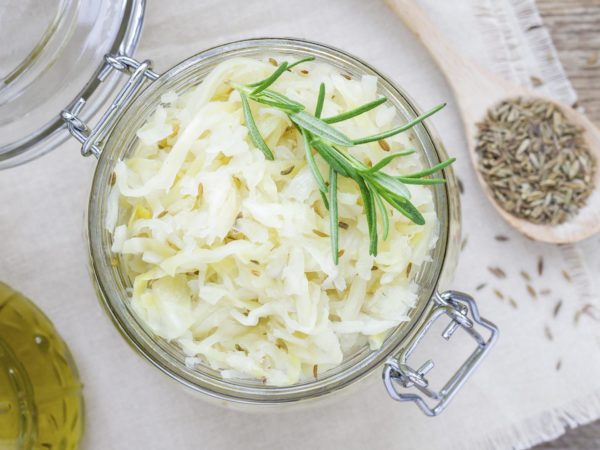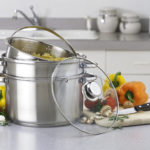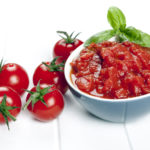Sold on Sauerkraut?
My neighbor says that sauerkraut is the best food in the world for health. I can’t stand the stuff, and she gets furious with me. Is she right?
Andrew Weil, M.D. | July 24, 2003

Sauerkraut may not be the best food in the world for health, but your neighbor is right about fresh sauerkraut being very good for you. The friendly lactobacilli created in the fermenting process by which cabbage is transformed into sauerkraut aid digestion, increase vitamin levels, produce a variety of beneficial enzymes and promote the growth of healthy flora throughout the digestive tract. And in a study published in the October 23, 2002 Journal of Agricultural and Food Chemistry Finnish researchers reported that fermenting cabbage produces compounds known as isothiocyanates, shown in laboratory studies (in test tubes and animals) to prevent the growth of cancer. There’s no evidence, yet, that these compounds have the same effect in humans, but we do know that isothiocyanates occur naturally in broccoli and brussel sprouts, vegetables which appear to be protective against cancer.
From a nutritional point of view sauerkraut is a great food choice. One cup amounts to only 44 calories, provides eight grams of fiber and plenty of vitamin C. The downside to sauerkraut is its salt content. To make sauerkraut you shred cabbage, add salt and wait for it to ferment. The salt draws out the cabbage juice, which contains sugar. The juice and sugar ferment forming lactic acid, which creates sauerkraut’s tangy flavor. But sauerkraut is one of the saltiest foods available, containing much too much sodium for people with high blood pressure and heart disease. If you rinse and soak sauerkraut in cold water before you eat it, you can lower the sodium content considerably.
Many peoples in the world, including Germans, Japanese and Chinese, consider it important to include fermented foods in their diets. Natural pickles, Korean Kimchi, tempeh and miso (made from soy) as well as high quality yogurt are all sources of the friendly cultures found in sauerkraut. Unfortunately, most of today’s commercially available sauerkraut is pasteurized and “dead” – that is, it lacks the beneficial bacterial cultures that make it so good for us. Instead, all you get is a lot of salt. To get the health benefits, look for fresh sauerkraut in the refrigerated sections of natural food stores and in barrels in delicatessens that still make their own. Or, even better, make it yourself – it’s not that difficult.
Andrew Weil, M.D.










